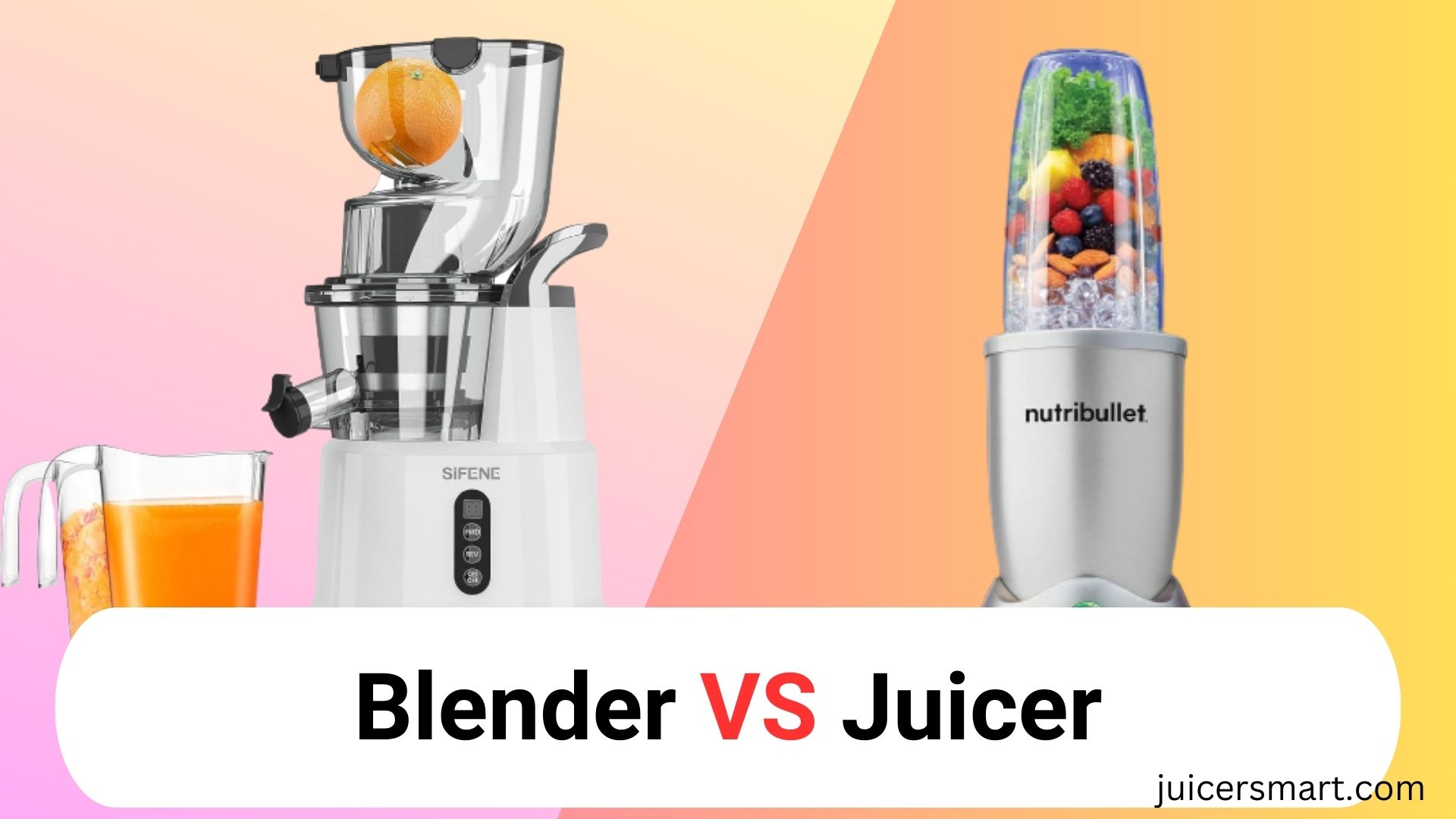Blenders and juicers are both kitchen appliances designed for processing fruits and vegetables, but they serve different purposes and have distinct features. Let’s compare blenders and juicers in terms of their functions, advantages, and best use cases:
Blender:
- Function: Blenders are versatile appliances that can blend, chop, puree, and mix a wide variety of ingredients. They use a rotating blade to combine ingredients into a uniform mixture. Blenders do not separate the fiber from the juice, resulting in a thicker, more viscous consistency.
- Advantages:
- Retains Fiber: Blenders retain the dietary fiber present in fruits and vegetables, providing a thicker and more filling beverage.
- Versatility: Blenders can be used for making smoothies, soups, sauces, dips, and even desserts like ice cream.
- Nutrient Retention: Because they retain the whole fruit or vegetable, blenders often preserve more nutrients and antioxidants than juicers.
- Best Use Cases:
- Smoothies: Blenders are perfect for making smoothies that include whole fruits, vegetables, yogurt, and other ingredients.
- Soups: Blenders are used to puree ingredients in soups, creating a smooth and creamy texture.
- Nutrient-Rich Shakes: Blenders are suitable for making nutrient-rich shakes that include ingredients like protein powder, nuts, and seeds.
Juicer:
- Function: Juicers are designed to extract the liquid content (juice) from fruits and vegetables while separating the fiber and pulp. They use a spinning or pressing mechanism to extract the juice from the produce.
- Advantages:
- Liquid Concentration: Juicers produce a concentrated liquid, which can be refreshing and easier to consume in larger quantities.
- Removal of Pulp: Juicers remove the fiber and pulp, resulting in a thinner and smoother juice with a different texture compared to blended drinks.
- Quick Absorption: Juice from a juicer is quickly absorbed by the body because the digestive system doesn’t need to break down the fiber.
- Best Use Cases:
- Fresh Fruit and Vegetable Juices: Juicers are ideal for making pure fruit and vegetable juices with minimal fiber content.
- Detox or Cleansing Juices: Some people use juicers for detoxification or cleansing diets, as they provide concentrated nutrients without the bulk of fiber.
- Hydration: Juices can be a refreshing and hydrating beverage, especially in hot weather.
Choosing Between a Blender and a Juicer:
Your choice between a blender and a juicer depends on your preferences, dietary goals, and the types of beverages or dishes you want to prepare:
- Blender: Choose a blender if you prefer thick and nutrient-dense smoothies, enjoy the added fiber, and want a versatile kitchen appliance for a wide range of recipes.
- Juicer: Opt for a juicer if you want to focus on pure, liquid refreshment, prefer a smoother juice consistency, or are following a juice cleanse or detox regimen.
Many people find it beneficial to have both a blender and a juicer in their kitchen to enjoy the advantages of both appliances and cater to different needs. Ultimately, the choice between a blender and a juicer should align with your dietary preferences and lifestyle.
